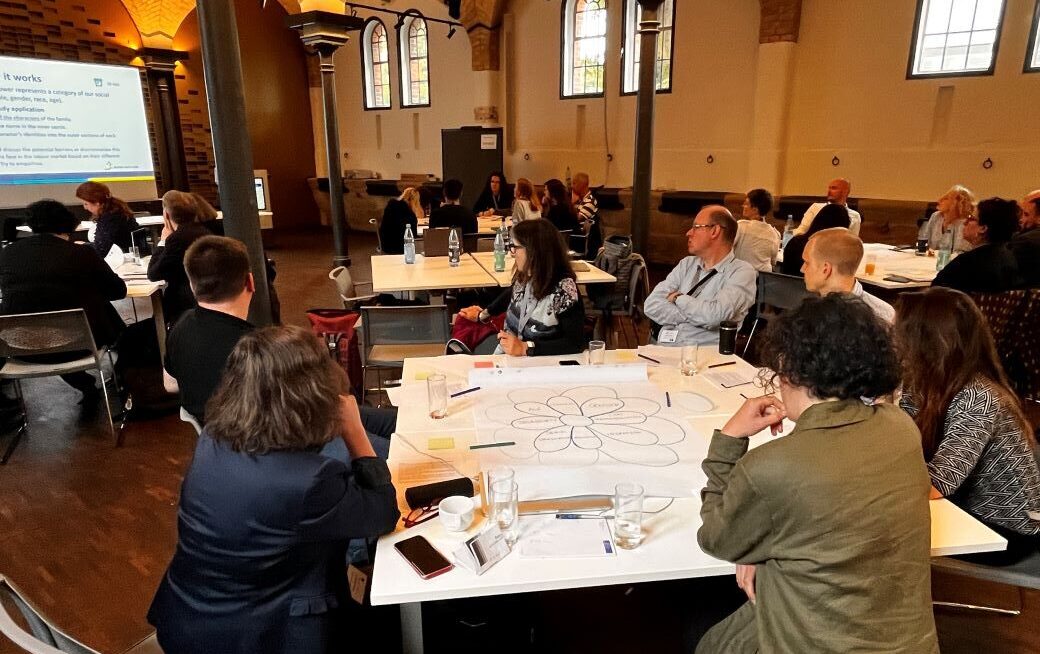On the 30th of May, PATHS2INCLUDE held a Policy Forum at the University of Hannover gathering researchers, experts on employment policies and civil society representatives to discuss the role of research in advancing inclusive labour market policies.
The first panel focused on “Supporting evidence-based policies for the inclusion of people in vulnerable situations in the labour market”. Dr Ona Valls Casas from the University of Luxembourg shared an overview of existing gaps in data collection on at-risk groups that may interfere when developing and assessing the effectiveness of public policies. Dr Federico Ciani from Action Research for Co-Development (ARCO)
gave an answer to the following question: “How do we get more people to work?” by providing an analysis of the interaction between contextual and individual characteristics, how it evolves over time and across regions and how it impacts public policies on employment and the employability of individuals. Tina Weber from Eurofound presented existing policies to assist the inclusion of vulnerable people into the workplace. She focused on non-standard employment which includes, very short fixed-term contracts, very low hours part-time, zero-hours contracts, casual contracts and undeclared work.
The second panel took a closer look at the situation of women and carers, in the labour market, by examining gender gaps in the labour market and the inclusiveness and flexibility of work-life balance policies. Dr Sara Ayllón Gatnau from the University of Girona explained that childcare responsibilities and intra-household reallocation of resources are the main factors causing gender gaps in the labour market. Dr Ivana Dobrotić from University of Zagreb shared results from the project rEUsilience looking at the inclusiveness and flexibility of work-life balance policies. The findings point to challenges experienced by families in navigating policies due to complex policy infrastructures and lack of coherence in systems, referring to ‘silent’ cleavages embedded in policy design, bringing multiple and intersectional inequalities in care & employment. She also highlighted that stable and ‘standard’ employment are a primary condition behind eligibility and access to policies and support services. Both Horizon Europe (HE) projects will continue exchanging and exploring opportunities for further cooperation, also with other HE projects.
The afternoon session of the forum was a workshop aimed at harvesting collective knowledge to explore policy solutions for inclusive labour markets. The workshop fostered interaction and exchanges on potential solutions at different levels (company policy, public policy, services) from an intersectional perspective.
See full programme here

